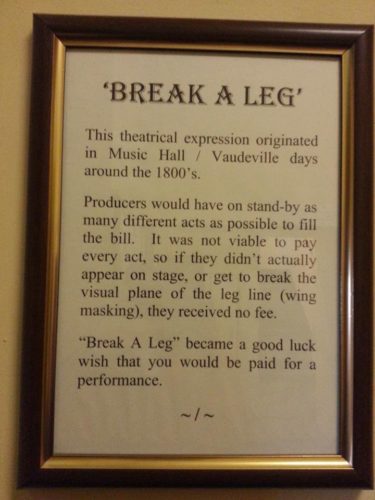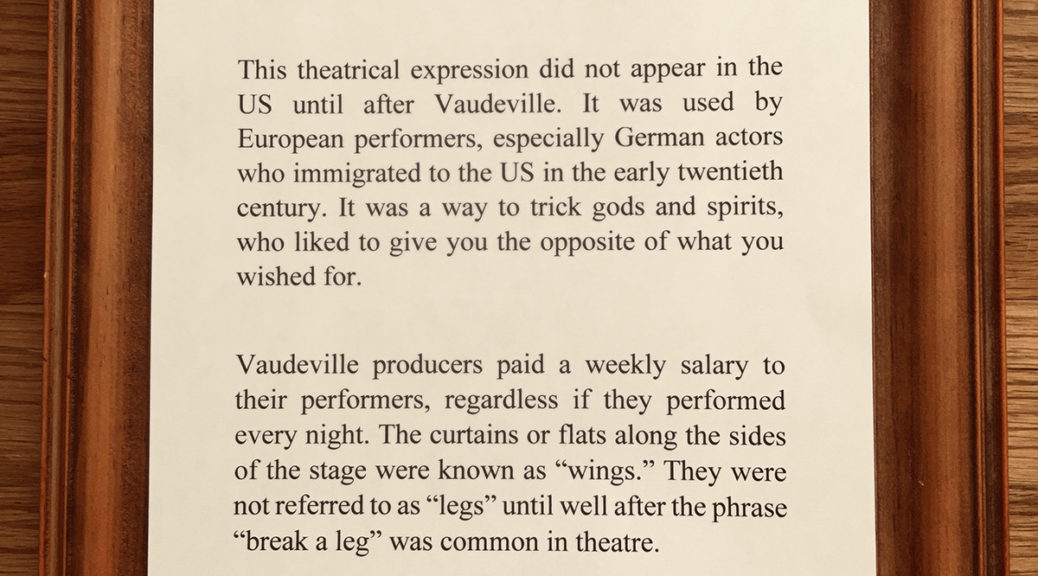Today, let me regale you with several quotes I’ve collected from mid-twentieth century books on props.
“One of the key jobs on any film set is that of the property master, and his range of activity is perhaps the largest of all. If it ‘moves, it’s mine,’ the prop man can say, on most occasions.”
People who Make Movies, by Theodore Taylor, 1967 (pg 76).
“In the property-maker’s room lives the wizard of the studio. He is always experimenting with new compositions with which to get the multitudinous effects that he is called on to supply. Latex, rubber solution, glues, Rhodoid, cellophane, resinous plastics, Perspex, and ingenuity – these are his materials. He is an inventor, a chemist, a bit of an artist, and an engineer.”
Designing for Films, by Edward Carrick, 1950 (pg. 106).
“The three basic types of properties are stage props, such as furniture, news desks, and lecterns; set dressings, such as pictures, draperies, and lamps, and hand props, which are items such as dishes, telephones, and typewriters actually handled by the talent.”
Television Production Handbook, 5th ed., by Herbert Zettl, 1992 (pg. 440).
“The most important part of any storage area is its retrieval efficiency. If you must search for hours to find the props to decorate your office set, even the most extensive prop collection is worth very little. Clearly label all storage areas, and then put the props and scenery back every time in the designated areas.”
Television Production Handbook, 4th ed., by Herbert Zettl, 1984 (pg. 28).
“As soon as the actors are free of books, important hand props (those handled a good deal by the actors) should be brought to rehearsal – or rehearsal substitutes provided – so actors can practise the use of them and save time at dress rehearsals.”
Directing for the Theatre, by Wieder David Sievers, 1965 (pg. 246).


